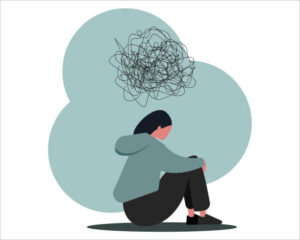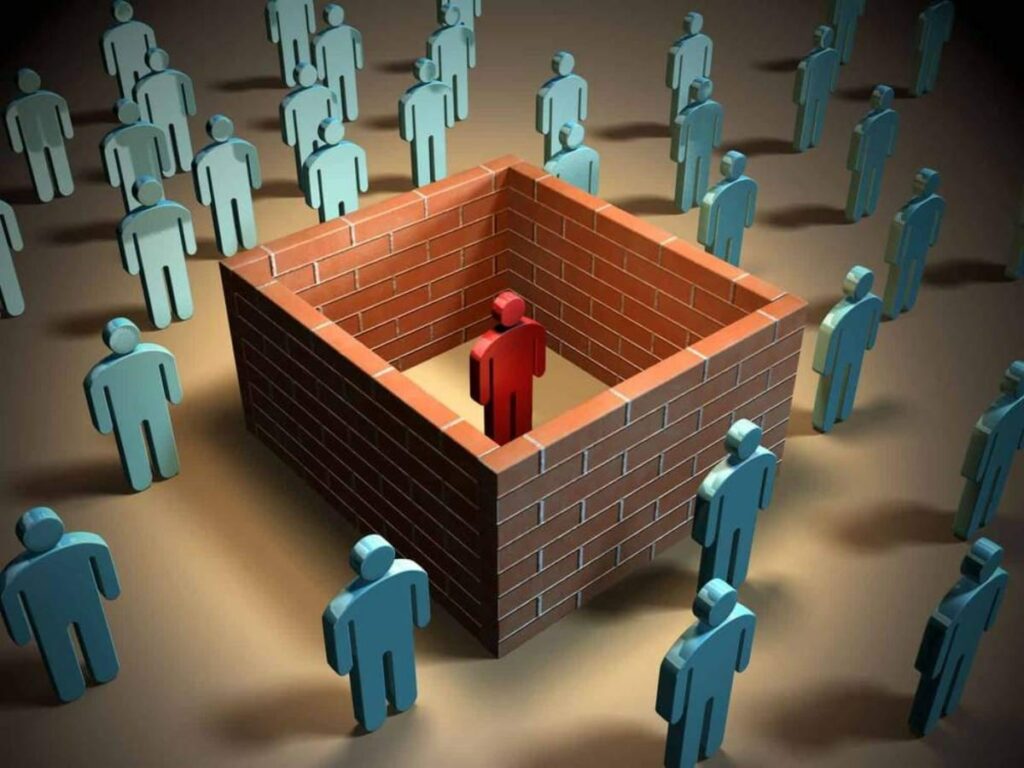Do you ever feel like you’re missing something? That there’s a big part of life that you’re not experiencing? You might be suffering from emotional or social isolation. This is a condition that affects many people and can have serious consequences if left untreated. In this blog post, we will discuss what emotional and social isolation is, the effects it can have on your life, and how to cope with it.
Contents
What Is Social And Emotional Isolation?

Often when we think of isolation, we only take into account physical isolation as observed after the outbreak of the Covid-19 pandemic. However, emotional and social isolation can be just as harmful to our well-being.
Emotional isolation is characterized by a lack of close relationships and social isolation is the lack of contact with other people. Emotionally isolated individuals may feel numb or “shut down” with their feelings and refrain from talking about them.
Whereas, social isolation refers to the absence of contact with the outside world. Socially isolated individuals prefer staying at home without little to no social interactions.
How Are They Different?
Although emotional and social isolation is not directly related, the two have some common characteristics. While it’s possible to feel lonely even when surrounded by people, such as in a crowded room full of strangers, one can also be socially isolated without feeling emotionally alone.
Causes Of Social And Emotional Isolation

There are many reasons why people may experience emotional or social isolation. Some causes are within our control, while others are not.
Introversion
People who tend to be introverted may be more likely to experience emotional isolation, as they may prefer to spend time alone. As a result, it gets difficult for them to form and maintain social relationships.
Physical/mental illness
Those struggling with a chronic illness may find it difficult to have energy for social interactions due to health restrictions.
Caretaking
Similarly, those who have to look after an ill person may not have enough time or energy to socialize. They may feel emotionally fatigued because of their
Bereavement
Those suffering from the loss of a loved one tend to become socially isolated, so as to take time process their grief. Losing somebody close may provoke feelings of loneliness and pain, hence making the person emotionally aloof and numb.
Employment
Those with high demanding jobs might not only find time to socialize, but also may not have the mental capacity to be emotionally available.
Side Effects Of Social And Emotional Isolation

Facing social or emotional isolation can have drastic effects on an individual’s overall well-being. Some consequences of the above are:
– feeling invisible or unimportant
The lack of external social support and validation can lead to feelings of low self-worth.
– difficulty trusting people
Due to the lack of fulfilling social companionship, feelings of trust and wholeness can be hard to nurture.
– feeling anxious or depressed
Being socially aloof can have effects on one’s psychological well-being and further lead to disorders like depression, agoraphobia(fear of social places/situations), anxiety disorders, or schizophrenia.
– increased stress levels
This has proven to be a leading cause of physiological conditions like hypertension, gastric issues, migraines, along heart problems.
Other physical side effects include
-tense and sore muscles
-disturbed sleep schedule
-increased or decreased appetite
– decreased immune system function
How To Cope With It
Like with every other psychological issue, help is available for dealing with social or emotional isolation.

Seeking professional therapy
Talking to a mental health professional can subsequently help you understand your emotions while coming up with ways to process them.
Establishing a daily routine
Planning your day ahead of time can alternatively help in avoiding feelings of loneliness, for one thing. Sticking to a time table can eliminate free time to dwell in isolation.
Doing Physical activity
Adrenaline and other hormones which are released in response of indulging in physical activity evidently help in regulating the brain and give energy
Adopting a pet
Animals help in producing dopamine and serotonin (feel-good hormones) and consequently curb the feelings of loneliness. It can also evoke the feelings of responsibility, regularity and love, which promotes the production of happy hormones like serotonin and oxytocin.
Going on Solo trips
Going on solo adventures can help in discovering one’s inner self, passions and realize their own self worth. Self exploration can help in
Challenging your brain
Indulge in new and unfamiliar activities which can help in utilizing your time, explore new things and similarly divert the mind from feeling lonely.
Conclusion
There is no shame in admitting that you’re feeling lonely or socially isolated. Therefore, it is important to reach out for help if you’re struggling to cope. For this reason, there are many resources available to help you get through this difficult time. Remember, you are not alone.
A Word From Therapy Mantra
Your mental health — Your psychological, emotional, and social well-being — has an impact on every aspect of your life. Positive mental health essentially allows you to effectively deal with life’s everyday challenges.
At TherapyMantra, we have a team of therapists who provide affordable online therapy to assist you with issues such as depression, anxiety, stress, workplace Issues, addiction, relationship, OCD, LGBTQ, and PTSD. You can book a free therapy or download our free Android or iOS app.


